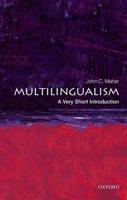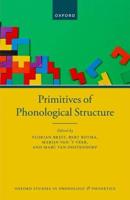Publisher's Synopsis
The relationship between language and other aspects of conceptual development is one of the central issues in child language acquisition. One view holds that language is a special capacity, separate from other areas of cognition and learning. Another maintains that language is part of a larger, more general cognitive system, and is crucially dependent on other cognitive domains. Recent research has turned to blind children and their acquisition of language as a way of evaluating whether and how language development relies on the non-linguistic context. Vision and the Emergence of Meaning addresses this complex problem through a detailed empirical analysis of early language development in a group of blind, partially sighted and fully sighted children who took part in a pioneering longitudinal investigation at the University of Southern California. By exploring the strategies which blind children bring to selected aspects of the language learning task, Anne Dunlea not only identifies some important differences between blind and sighted children, but also offers new insights on semantic and pragmatic development in general. Further, the study demonstrates the role of conceptual information in language learning and, at a more fundamental level, reveals a convergence of early language and conceptual development.











